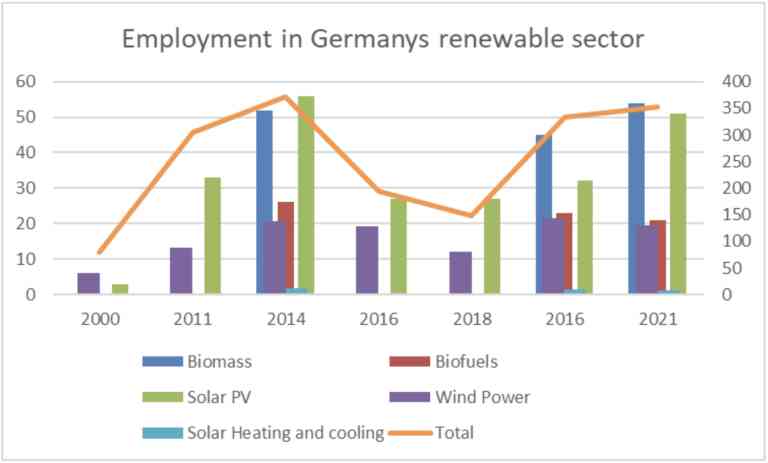The plan includes financial assistance to help transform coal-dependent regions. The funds are allocated to infrastructure development, research and innovation projects, and the promotion of emerging new industries (Federal Ministry for Economic Affairs and Energy, 2015). These services are relevant for the workers who seek to change their occupation from industries that are declining to the industries that are emerging such as the renewable energy transition sector.
Conclusion
Germany's Energiewende movement has brought the green revolution in the labour market of Germany presenting both challenges and opportunities. From the conventional energy sources to renewable energy sources, the transformation can be seen in the development of wind and solar PV industries and thereby providing employment for the citizens. However, this change has also resulted in job losses, particularly in the coal and nuclear sectors.
This implies that support measures should be taken by policy makers. In Germany, the government and industry stakeholders have taken measures through training and educational programs such as "Coal Comprise." Through other measures such as funding for workers education and training, and economic incentive programs, Germany may overcome some of the challenges that will come with transitioning to sustainable energy sources. These approaches are important to ensure the transition to renewable energy that is inclusive and sustainable.
Bibliography
BMWK - Bundesministerium fr Wirtschaft und Klimaschutz. (n.d.). Bruttobeschftigung durch Erneuerbare Energien 2000 bis 2022. BMWK. https://www.bmwk.de/Redaktion/DE/Downloads/E/ee-beschaeftigte-2000-2022.html
Bundesagentur fr Arbeit. (n.d.). Services. Retrieved from https://www.arbeitsagentur.de/en
Federal Ministry for Economic Affairs and Energy. (2015). The Energy of the Future: Fourth "Energy Transition" Monitoring Report --- Summary. Retrieved from https://www.bmwk-energiewende.de/EWD/Redaktion/EN/Newsletter/2015/01/Meldung/topthema-the-energy-transition.html
Clean Energy Wire. (2021). Correction: Drop in production and installation cuts employment in German renewables sector. https://www.cleanenergywire.org/news/correction-drop-production-and-installation-cuts-employment-german-renewables-sector
Clean Energy Wire. (2021). German renewables sector employment 2022 highest level in a decade. https://www.cleanenergywire.org/news/german-renewables-sector-employment-2022-highest-level-decade
European Union. (2022). Special report: EU support to coal regions in transition. https://op.europa.eu/webpub/eca/special-reports/support-coal-regions-22-2022/en/









